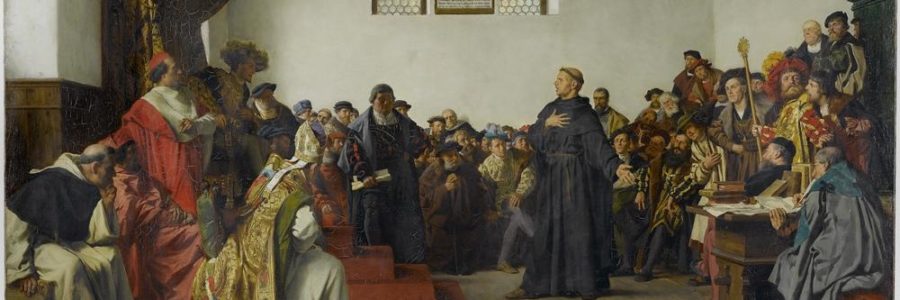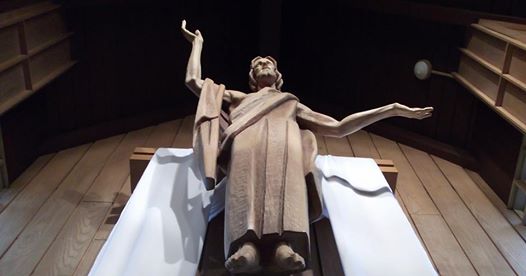February 2021
Dear Belovéd of Christ:
This year, Valentine’s Day falls upon the Transfiguration of Our Lord, the end of the Epiphany Season (February 14). The Season of Lent begins later that week with Ash Wednesday (February 17). So we see the close proximity on the calendar of the commemoration of love and the symbol of repentance and forgiveness.
St. Valentine was, of course, a real person—a Christian martyr, in fact. He lived from approximately 226 A.D. to 269 A.D., being martyred at about the age of 42 or 43. He was a Roman priest (perhaps a bishop) who ministered to persecuted Christians under Emperor Claudius, doing such things as performing Christian marriages for them when it was against the Roman law so to do. It is also said of St. Valentine that he refused to sacrifice to pagan gods. Finally, being imprisoned for this, St. Valentine gave his testimony in prison and—according to tradition—through his prayers, the jailer’s daughter, who was suffering from blindness, was healed. On the day of his execution, St. Valentine left her a note that was signed, “Your Valentine.” He was likely martyred on February 14, 269.
Of course, we do not know if all the legends and stories that surround St. Valentine are fully accurate. Most likely, there is truth to be found there, along with a bit of legendary exaggeration. In time St. Valentine did become the patron saint of courtly love. His love was sacrificial and was based in the love of God in Jesus Christ. However, his day has become about something quite different in the minds of most people. When we think about Valentine’s Day now, it tends to turn our thoughts to romantic, or sentimental, love.
However, when the Bible talks about love, it does not mean some kind of sentimental feeling or emotion. It certainly does not have anything to do with red hearts, paper doilies, or greeting cards. Rather, it mostly has in mind a totally selfless and self-giving love toward another (the kind that the actual St. Valentine exemplified). The primary example of such love is God Himself. After all, “God is love” (1 John 4:8, 16). It is His very nature. Everything He does for His dear children is done out of His love.
God the Father loved us in such a way that He sent His only-begotten Son to die for the sins of the world so that people could be forgiven and in turn love one another. And that is where we see the close connection between love and forgiveness, or between St. Valentine and ashes. In fact, the connection between the two is so close that they cannot be separated. Love forgives, and forgiveness flows from love. So Jesus Christ is not only the greatest example of love, but is also the source and power of our love: for Him and for one another. He is Love in the Flesh who gave Himself into death on the cross for us so that we would be forgiven and thereby forgive others.
Now, since He has forgiven us, “We love Him because He first loved us” (1 John 4:19). This is important because “God shows his love for us in that while we were still sinners, Christ died for us” (Rom. 5:8). God does not wait for us to somehow straighten up and get our act together. “God, being rich in mercy, because of the great love with which he loved us, even when we were dead in our trespasses, made us alive together with Christ” (Eph. 2:4–5). “You, who were dead in your trespasses and the uncircumcision of your flesh, God made alive together with him, having forgiven us all our trespasses, by canceling the record of debt that stood against us with its legal demands. This he set aside, nailing it to the cross” (Col. 2:13–14). Yes, love and forgiveness do and must go together.
Since God so loves and forgives us, we also are to love and forgive others. God says, “If anyone says, ‘I love God,’ and hates his brother, he is a liar; for he who does not love his brother whom he has seen cannot love God whom he has not seen” (1 John 4:20). So, “Beloved, let us love one another, for love is of God; and everyone who loves is born of God and knows God. He who does not love does not know God, for God is love. In this the love of God was manifested toward us, that God has sent His only begotten Son into the world, that we might live through Him. In this is love, not that we loved God, but that He loved us and sent His Son to be the propitiation for our sins. Beloved, if God so loved us, we also ought to love one another” (1 John 4:7–11). “Above all, keep loving one another earnestly, since love covers a multitude of sins” (1 Pet. 4:8). Yes, love and forgiveness go together.
And finally, “Love suffers long and is kind; love does not envy; love does not parade itself, is not puffed up; does not behave rudely, does not seek its own, is not provoked, thinks no evil; does not rejoice in iniquity, but rejoices in the truth; bears all things, believes all things, hopes all things, endures all things. Love never fails” (1 Corinthians 13:4–8a).
One more thought on this topic of love: You will notice that many of the quotes above come from the writings of St. John the Belovéd, Apostle and Evangelist. He is often called the Apostle of Love because of his frequent writing on the subject of love. The following is a quote about the end of St. John’s life taken from Jerome’s commentary on Galatians (page 260):
“The blessed John the Evangelist lived in Ephesus until extreme old age. His disciples could barely carry him to church and he could not muster the voice to speak many words. During individual gatherings he usually said nothing but, ‘Little children, love one another.’ The disciples and brothers in attendance, annoyed because they always heard the same words, finally said, ‘Teacher, why do you always say this?’ He replied with a line worthy of John: ‘Because it is the Lord’s commandment, and if it alone is kept, it is sufficient.’”
God grant you to know such love and forgiveness that you, too, love and forgive others. Have a Happy St. Valentine’s Day, and a Holy Ash Wednesday.
In the love of Christ,
Pastor Steven Anderson










